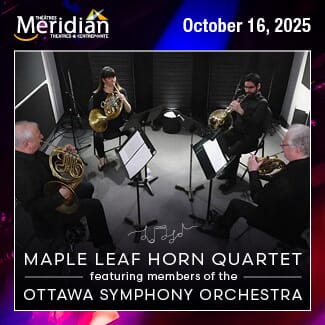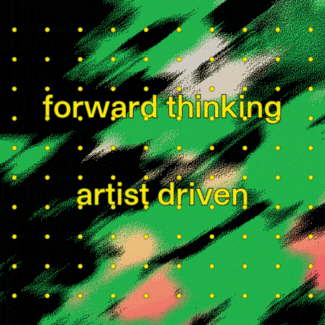We’ve been hearing buzzing sounds in Ottawa’s nights — there’s movement after dark, just what we like to see! The city’s scene seems to be in an upward stream, and with our Nightlife Commissioner now a little over one year into the job, it feels like the right moment to reflect on how things are going.
The City’s Nightlife Office has been busy: Canada After Dark took place during the first-ever Capital Music Week, the Night Ambassadors Program launched in the ByWard Market and published their first impact report, and just last week the Office unveiled its official website to help people explore everything happening during the dark hours (with a mention to Apt613, merci!).
With all these tangible results starting to emerge, we couldn’t help but get curious about what’s happening behind the scenes. So, a year since our last interview, we sat down with Commissioner Mathieu Grondin to hear a little more about his first year in the role — and to talk about what’s next for Ottawa’s nightlife.
This interview has been edited for length and clarity.
Apt613: Thanks for joining us! One year in — how are you feeling about the role so far?
Mathieu Grondin: I’m feeling great — it’s been a very exciting first year and we’ve delivered a lot. Since I took the position in June 2024, I’ve really met with a good chunk of the city, of people who are active in nightlife in the city or feel they have an interest in this. I feel like a lot of stuff we’ve been working on for the last year is finally being made visible and rolling out, and reaching the public.
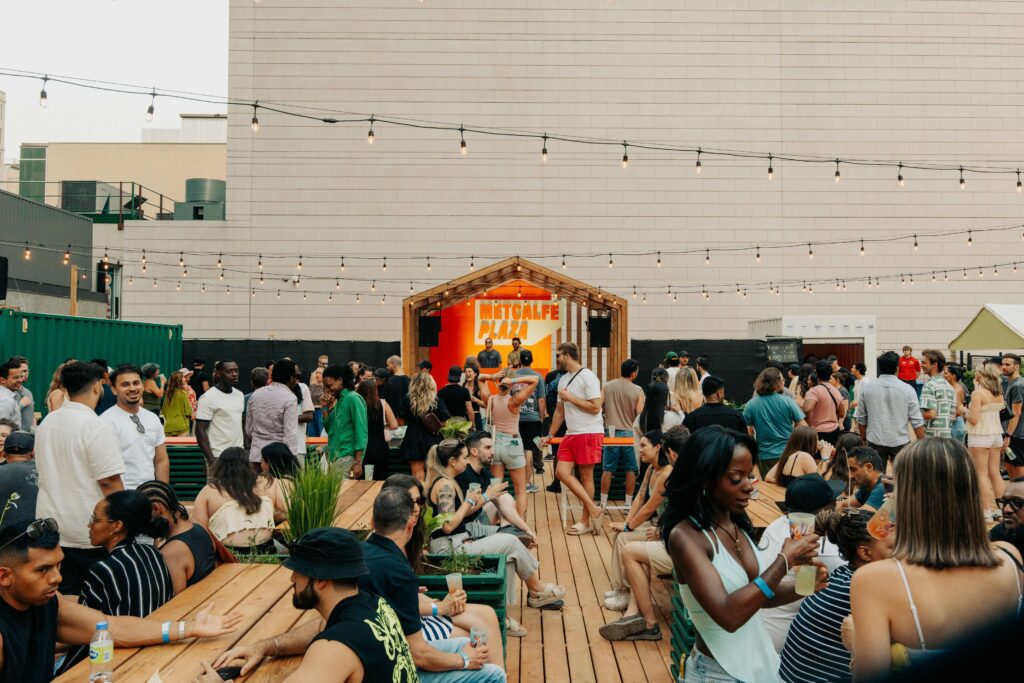
Metcalfe Plaza on Aug. 16. Photo provided.
This past year has seen milestones like Canada After Dark, the Night Ambassadors Program, bylaw changes and now the new website. How do these pieces fit into the bigger vision?
The main mandate of the Nightlife Commissioner is to execute the Nightlife Economy Action Plan which was made up of 10 recommendations and we’re pretty much there. I think some of these recommendations will need to be revisited over time and it’s going to take longer than just a year to fully activate them. At this point, my vision is secondary to this, because it’s really about implementing the Action Plan.
Next year is going to be interesting, because now we are working towards the end of that plan and the end of this term of council. After the election next fall, we will come up with a new action plan for the next term of council. Then I can start sharing my own vision as part of that plan too.
But it’s not just about my ideas; it’s really about consulting the people who make the nightlife vibrant in Ottawa and what they want to see. Going out in the community and engaging with the stakeholders, with different community partners will be a big part of making up that vision.
A big part of nightlife is the people who create it and keep it alive. Over your first year, what have you been hearing most from artists, venues, residents, and others active in the scene?
Well, it depends who you speak with. Venue owners, artists and residents will all talk about what concerns them. My role here is to find the right balance between all these competing interests. Flexibility in public transit is always an issue for example, as well as affordability. When you go out and the drinks are $15, that’s tough. We need more free and accessible events, like the one we did at Metcalfe Plaza, where people can gather and enjoy themselves without cost being a barrier.
And, then there’s the stuff we hear all the time, like the parking, the tickets, et cetera, that is always an issue. Ottawa is a big city. If you live downtown, you might take your bike or the bus. And if you live in the suburbs, it’s going to be more complicated to get to town. So, I think there’s been a lot of focus on that in the last year since I got here.
In terms of revitalizing downtown, I always say, a downtown is like the heart and lungs of a city. If that doesn’t work, the rest is not going to work. I think fixing it is not going to happen overnight, but with projects like the street seats and Metcalfe Plaza, we’re showing what we can do in terms of bringing back vibrancy.
After that, I’d like to see these projects elsewhere around town. It’s important to develop nightlife pockets throughout the city.
View this post on Instagram
Looking back, what’s surprised you the most in your first year?
Coming from Montréal, a city that has a vibrant nightlife but a lot of issues in terms of keeping it, bigger cities in general tend to associate nightlife with the negative externalities, like overconsumption of substances or noise complaints. This makes it tough to act on these issues, because politicians are a bit sandwiched between the residents who want to sleep and the people who want to go out.
Whereas when I got here, everyone wanted to develop nightlife. And it’s been a pleasant surprise at how the different departments and services inside the administration were quick to develop what I call the ‘nightlife reflex’ and consider me as an internal advisor for their projects to apply this nightlife lens.
After just over a year, I’ve seen the changes. This is very refreshing, and gives me a lot of hope for the future in how I’ve been able to enact some cultural shift from within the city.
Having a Nightlife Commissioner is a first for Ottawa, but not for other cities around the world. What makes Ottawa’s approach unique?
There’s some shared priorities globally like affordability, gentrification, and sustainability. But then there are city-specific issues. For instance, safety might not be as big of a concern in Europe as it is here in North America. Also, the way that our cities are built is different. There’s much more density in Europe. Whereas here, there’s a lot of urban sprawl. So, when it comes to public transit for example, it’s much more difficult to develop and to sustain financially. So that means the priorities are going to be different here.
And as I said, what surprised me when I got here, is how thirsty people were for this, how much they wanted [a thriving scene]. Not that we don’t have it already, but I think that’s the biggest difference between Ottawa and Montreal or Toronto, for example. Ottawa is up for a fight.
Do you think we need to compare ourselves to other cities in our region?
Comparison is inevitable and I think it can be positive. Ottawa is not Toronto and it’s not Montréal. We can find our own identity, and that’s important, because if we are not attractive enough, we’re not going to be able to retain our talent.
I come from the electronic music scene and I hear a lot of people from Ottawa driving to Montréal to dance every second weekend, while we have a growing number of venues here now. I want to try and address that: I want our artists to be able to have a future here, I want the night owls to be able to go out, without feeling like they need to go elsewhere to enjoy nightlife. So, we don’t need to compare ourselves to each other, but it can also be a good lever to enact change.
Then, what do you think Ottawa’s nightlife says about the city’s identity?
That’s a very interesting question! We’re actively working to strengthen our city branding, and nightlife is a key part of that. It’s a tremendous opportunity to showcase our city and rebuild civic pride. If we are satisfied and proud of our nightlife — and I think there’s a lot of people that already are — we might convince others that might not yet be proud that there’s a lot of stuff going on. We can get better at some stuff for sure, but there’s a really good base to work with already. Nightlife has this power to make us feel proud about the city and proud about who we are. That’s the outcome I would like to see come out of the Nightlife Office and everyone is on board and pushing in the same direction I think.
View this post on Instagram
So we get to change our own narrative in a way?
Exactly. It takes a village to do this. You can’t hire one guy and think that he is going to fix everything. It really takes a village to bring about that cultural shift and that change in the psyche of people. I think we’re heading in the right direction for that, I’ve already seen it happening.
Safety has been a priority for you. When you think about safety, accessibility, and inclusivity, what do you see as the most important steps forward?
It depends what you mean by safety. I think sometimes we tend to amalgamate safety and poverty issues, like homelessness, and the influence of that on our downtown core. What’s really important to me is that people can go out and feel safe. When I speak to the people who go out in the ByWard Market, I hear a lot about their concerns for safety, which might be different than what you hear in the media. It’s more about making sure that they can go out and not fear their drinks getting spiked or getting harassed or witnessing gender-based violence or homophobic acts.
To me, the quickest and most sustainable way towards safety is that a safe night is a busy night. Bringing more vibrancy and bringing more people out on the streets at night, I believe, is the way forward. The Downtown Revitalization Plan for example aims to bring in 50,000 new residents over the next 10 years, and hopefully those people will go out, but these changes take time.
Looking ahead to your second year, what are you most excited to focus on?
Moving on to the next Action Plan is most exciting for me, but we also need to keep developing new nightlife projects. My inbox is open for anybody who has a project and I’ll see how we can help them to make this project a reality.
We need more happenings. We need more venues. We need more events. We need more festivals. But, we also need people to be able to produce these events and run these businesses. What sometimes happens is that people have a lot of ideas, but they’re not ready to produce them, and it takes work to get there. So, my door is open for anyone who wants to chat about their projects to bring them into reality.
And finally — after a long night out in Ottawa, what’s your favourite late-night ritual or go-to spot?
I will settle for a good shawarma! And I might not be allowed to say it, but I think Kettleman’s Bagels are as good as Montréal’s. And they’re also a 24-hour business that I’m really fond of. It’s not too fancy, and it’s also good for a quick brunch or breakfast!
Want to stay updated on what’s coming up at the Nightlife Office? Follow their new website or Instagram.


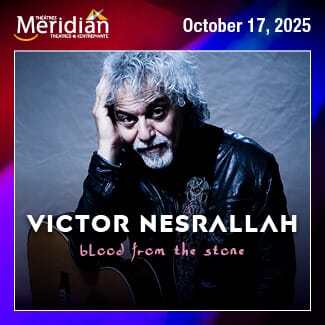
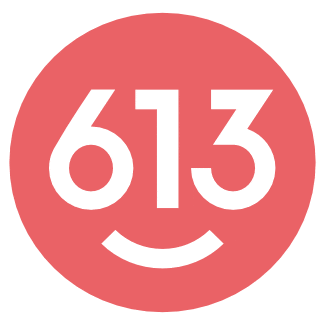
.gif)
